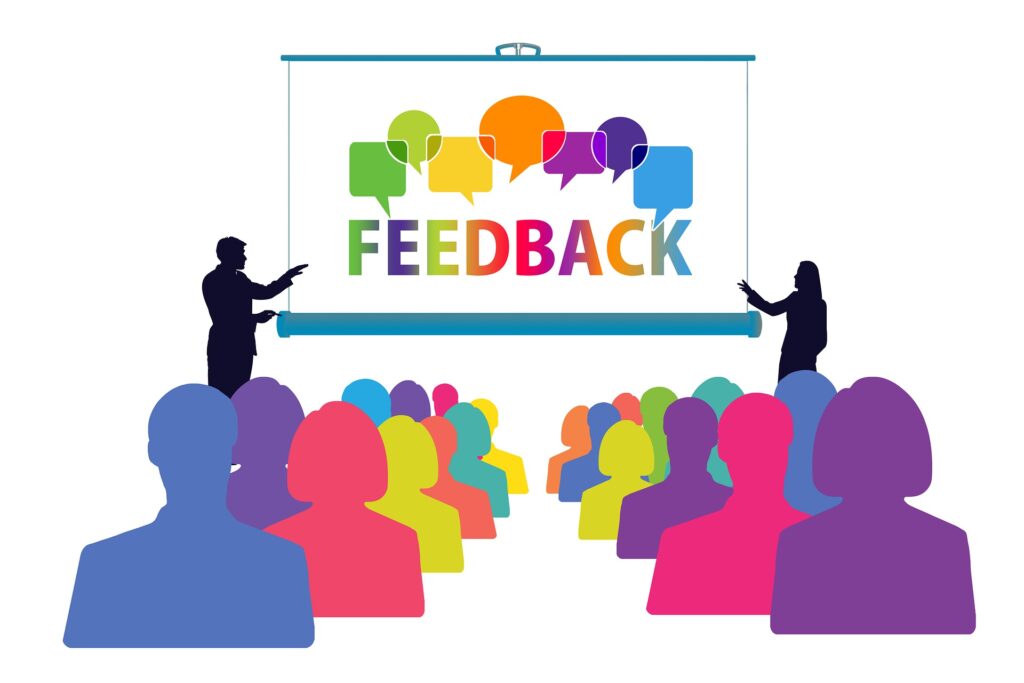Becoming a public relations specialist is not as difficult as one might think. In fact, there are many different ways to go about it. The most important part is choosing the right path for you and then following it through to the end. This article will discuss how to become a public relations specialist and what you can expect along the way.
Who Is Public Relation Specialist?

Public relations specialists work with organizations to manage their public image and communicate with the public. They help create press releases, make appearances on behalf of a company or organization, and generally handle any communications that take place between the organization and the public.
Public relations specialist jobs require a combination of interpersonal and communication skills, as well as knowledge of the media. They need to be able to craft effective messages and have an eye for detail and accuracy. They must be able to think on their feet and respond quickly, especially in the case of a crisis.
Read More: How To Become A Business Analyst With No Experience
How To Become A Public Relations Specialist?
People who are interested in learning more about how to become a public relations expert should be aware of the necessary education and training requirements. The actions listed below can help you how to become a public relations specialist.
1. Achieve A Bachelor’s Degree
A bachelor’s degree in marketing or a similar subject, such as business or communications, is required for public relations experts. This equips students with crucial background knowledge in fundamental business ideas, several types of strategic communication, and customer behavior.
Portfolio requirements are present in certain undergraduate marketing degree programs. By compiling their knowledge from the classroom and their fieldwork, students may showcase their learning in a portfolio.
2. Obtain Knowledge And Skills Via Work
Public relations professionals have the opportunity to apply their classroom knowledge to practical problems by gaining job experience. Many firms favor applicants who can show a body of work proving their expertise in the industry.
Public relations professionals might look for internships to assist them to build up a portfolio of work to present to potential employers after completing a degree program. Organizational skills, the capacity to strategize and set goals, issue resolution acumen, and communication skills are some of the main qualifications employers search for.
People may get the chance to write press releases, media pitches, and speech assistance during an internship with a public relations agency. Public relations professionals may decide to take on entry-level jobs in the industry to gain experience.
3. Writing Abilities
Public relations relies heavily on writing. Public relations professionals need to present engaging tales to audiences to captivate them and earn their trust, whether they are writing press releases or speeches. It requires significant expertise to create communications that resonate and express insightful and motivating concepts.
4. Organizing Techniques
PR specialists may need to manage many events concurrently while monitoring media coverage of their company and online sentiment. This calls for exceptional multitasking abilities as well as the capacity for careful planning and time management.
5. Interpersonal Competence
The capacity to build trusting working connections with people frequently determines the success of public relations professionals. For instance, public relations professionals frequently present journalists with story suggestions.
It is more probable that these journalists will listen to your pitches and use them in their magazine or broadcast if you have good relationships with them. Public relations professionals must be good listeners, insightful questioners, and personable and effective communicators.
6. Knowledge Of News
Public relations professionals must remain up to date on news and trends. This provides companies with the knowledge they need to match their public relations initiatives with hot-button issues important to their target markets.
Audience relations professionals may strategically create their strategy by having a strong understanding of what will connect with the public and what will fall flat. Some channels develop social media programs that help to shape public perception/ public opinion and aid in the formation of alliances with organizations and people.
7. Development In The Field

A graduate degree is frequently chosen by public relations experts who desire to increase their earning potential and develop more competence in the area. Public relations professionals have the opportunity to develop their leadership abilities by earning a master’s in business administration. Additionally, it enhances their understanding of customer behavior and marketing management.
The Following Skills Are Required To Obtain Development:
- Being adaptable to a company’s last-minute modifications
- Information gathering: keeping up with current affairs to keep organizations relevant
- Big-picture thinking is taking a step back and considering the potential outcomes of a project or campaign.
- Building relationships with others in the community through networking and other activities.
- Strong writing: producing persuasive material to boost a company’s reputation.
- Careful reading: carefully examining each media message to guarantee the correctness
- Resilience is the capacity to take criticism in stride and use it to improve.
Learn More: The Best Online Screenwriting Courses
8. Aptitude For Addressing Issues
An essential part of a public relations specialist’s job is problem-solving. They use these abilities in a range of PR-related activities. Such abilities, when combined with inventiveness, provide individuals with the ability to respond rapidly to unexpected results.
They closely collaborate on brand initiatives, commercials, and press releases for an organization, going over every detail to spot any PR problems before they arise.
To find flaws that allow for a change in PR strategy, they track and analyze media coverage. Through crafting expertly worded press releases or starting a PR campaign, they offer answers by enhancing an organization’s reputation.
9. Obtain Certification
Although certification is not necessary to operate as a public relations professional, it might help you become more employable, especially at the beginning of your career.
The Accreditation in Public Relations (APR) certificate is offered by the Public Relations Society of America. You need to pass the computer-based test, participate in a panel presentation, and complete the Examination for Accreditation in Public Relations application to get accredited.
Read More: How To Become A Grant Writer?
Salary Of A Public Relations Professional

This section will inspire you to discover how to become a public relations professional.
The U.S. Bureau of Labor Statistics (BLS) reports that in 2020, the median annual wage for public relations experts was $62,810. More than $118,210 was earned by the top 10% of earners in the industry.
Additionally, the BLS projects that between 2019 and 2029, the number of positions for public relations specialists will increase at a rate of 7%, which is faster than the average for all professions.
Read More: How To Become A Proofreader With No Experience?
Final Thoughts
Aspiring public relations professionals should cultivate their writing and communication skills, stay up-to-date with industry news and trends, and pursue. Additionally, PR professionals need to be knowledgeable about social media, including how to use the various platforms, best practices for each, content planning, and creating digital and content marketing. If you have these skills then you should go for it.
Learn More: How Long Does It Take To Learn CSS?
